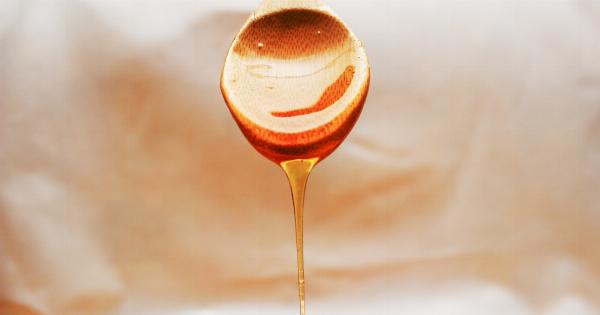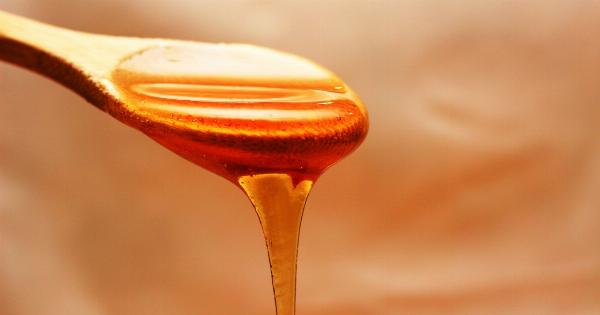When it comes to honey, there are a multitude of options available in the market. However, two types of honey that often steal the spotlight are Manuka honey and regular honey.
Both have their unique qualities and health benefits, but which one is truly superior? In this article, we will delve into the great debate of Manuka honey vs. regular honey, exploring their differences, uses, and potential health benefits. So, let’s get started!.
What is Manuka Honey?
Manuka honey is a type of honey that is produced by bees that feed on the nectar of the Manuka tree (Leptospermum scoparium) native to New Zealand. This honey is renowned for its potent antibacterial properties and is often used for medicinal purposes.
Manuka honey is distinct from regular honey due to its higher concentration of methylglyoxal (MGO), a compound responsible for its unique health benefits.
What is Regular Honey?
Regular honey, also known as table honey or pure honey, is the honey that is commonly found in most households. It is produced by bees that extract nectar from various flowers and plants.
Regular honey can vary in taste, texture, and color depending on the nectar source, making it a versatile sweetener in culinary applications.
Taste and Texture Comparison
One of the key differences between Manuka honey and regular honey lies in their taste and texture. Manuka honey generally has a stronger and more robust flavor profile compared to regular honey.
It is often described as earthy, herbaceous, and slightly bitter. Regular honey, on the other hand, has a milder and more familiar taste with varying degrees of sweetness depending on the nectar source.
In terms of texture, Manuka honey tends to be thicker and more viscous than regular honey. It has a sticky and dense consistency that makes it easier to spread on toast or use as a natural sweetener in recipes.
Regular honey, although it can exhibit different viscosities, is generally smoother and more liquid in form.
Health Benefits of Manuka Honey
Manuka honey has gained significant attention in the health and wellness community due to its potential medicinal properties. Here are some of the key health benefits associated with Manuka honey:.
1. Antibacterial and Antimicrobial Properties
One of the most notable properties of Manuka honey is its strong antibacterial and antimicrobial activity. The higher concentration of MGO in Manuka honey makes it effective against various strains of bacteria, including those resistant to antibiotics.
This property has led to its use in wound care, throat infections, and digestive health.
2. Wound Healing
The antibacterial properties of Manuka honey make it a popular choice for wound healing. It can help prevent infection, reduce inflammation, and promote tissue regeneration.
Manuka honey dressings have been used to treat burns, ulcers, and surgical wounds with promising results.
3. Digestive Health
Manuka honey is believed to have a soothing effect on the digestive system. It can help alleviate symptoms of gastrointestinal disorders such as acid reflux, gastritis, and stomach ulcers.
The antibacterial properties may also help combat Helicobacter pylori, a bacterium associated with stomach ulcers.
4. Immune Boosting
Consuming Manuka honey regularly may help enhance the immune system due to its antimicrobial properties. It can support overall immune function and help prevent common infections such as colds, coughs, and sore throats.
Manuka honey is often used as a natural remedy for respiratory issues.
5. Skin Care
Manuka honey has antioxidant and anti-inflammatory properties that can benefit the skin. It is commonly used in skincare products to moisturize, soothe, and help with conditions such as acne, eczema, and psoriasis.
The antibacterial activity of Manuka honey may also assist in clearing up blemishes.
Potential Health Benefits of Regular Honey
While Manuka honey is often lauded for its unique health benefits, regular honey also offers a range of potential advantages. Here are a few notable health benefits associated with regular honey:.
1. Antioxidant Power
Regular honey, especially raw honey, contains antioxidants that help protect the body against oxidative stress and tissue damage caused by free radicals. These antioxidants contribute to the overall health of various organs and systems in the body.
2. Cough Suppressant and Sore Throat Relief
Regular honey has long been used as a home remedy for coughs and sore throats. Its natural sweetness and soothing properties can provide temporary relief from coughing and alleviate throat irritation.
Mixing honey with warm water or herbal teas is a popular remedy for these symptoms.
3. Source of Energy and Nutrients
Regular honey is a natural source of carbohydrates and can provide a quick energy boost. It contains simple sugars, such as fructose and glucose, which are easily digested and utilized by the body.
Additionally, honey contains trace amounts of vitamins, minerals, and enzymes.
4. Gastrointestinal Aid
Regular honey, especially raw honey, has mild antiseptic and antibacterial properties that can aid in maintaining a healthy gastrointestinal tract. It can assist in soothing and healing digestive issues such as diarrhea and gastroenteritis.
5. Allergy Relief
Some individuals believe that consuming local honey, which includes regular honey produced in the vicinity, can help alleviate allergy symptoms.
The theory is that the tiny traces of pollen in the honey may desensitize the body to specific allergens over time.
Choosing the Right Honey for You
When it comes to choosing between Manuka honey and regular honey, it ultimately depends on your specific needs and preferences. Consider the following factors:.
1. Purpose
If you are looking for honey primarily for its potential medicinal properties or skincare benefits, Manuka honey may be the better option due to its higher concentration of MGO and specific health benefits.
However, regular honey can still be a suitable choice for general wellness and culinary purposes.
2. Budget
Manuka honey is generally more expensive compared to regular honey due to its limited production and higher demand. If you have budget constraints, regular honey provides a cost-effective and versatile alternative.
3. Taste Preferences
If you enjoy a stronger and more robust flavor, Manuka honey can be an excellent addition to your pantry. Regular honey, with its milder taste and varying flavors, may better complement your culinary creations and everyday use.
4. Availability
Regular honey is widely available in most grocery stores and supermarkets, while Manuka honey may require searching for specialty stores or purchasing online. Consider the convenience and accessibility of the honey options in your locality.
Remember to purchase honey from reputable sources to ensure quality and authenticity, especially when it comes to Manuka honey where counterfeit products can be a concern.
The Verdict: Manuka Honey vs. Regular Honey
Both Manuka honey and regular honey have their unique qualities and potential health benefits.
Manuka honey stands out for its higher concentration of MGO and potent antibacterial properties, making it particularly useful for wound care, digestive health, and immune support. On the other hand, regular honey offers a range of benefits such as antioxidant power, cough relief, and gastrointestinal aid.
When choosing between the two, consider your specific needs, taste preferences, budget, and availability.
You may even find that having both types of honey in your pantry offers versatility in various applications, from culinary delights to natural remedies.
So, whether you opt for the robust and distinct flavor of Manuka honey or the familiar sweetness of regular honey, both varieties can be enjoyed and appreciated for their unique characteristics and potential health-boosting properties.





























